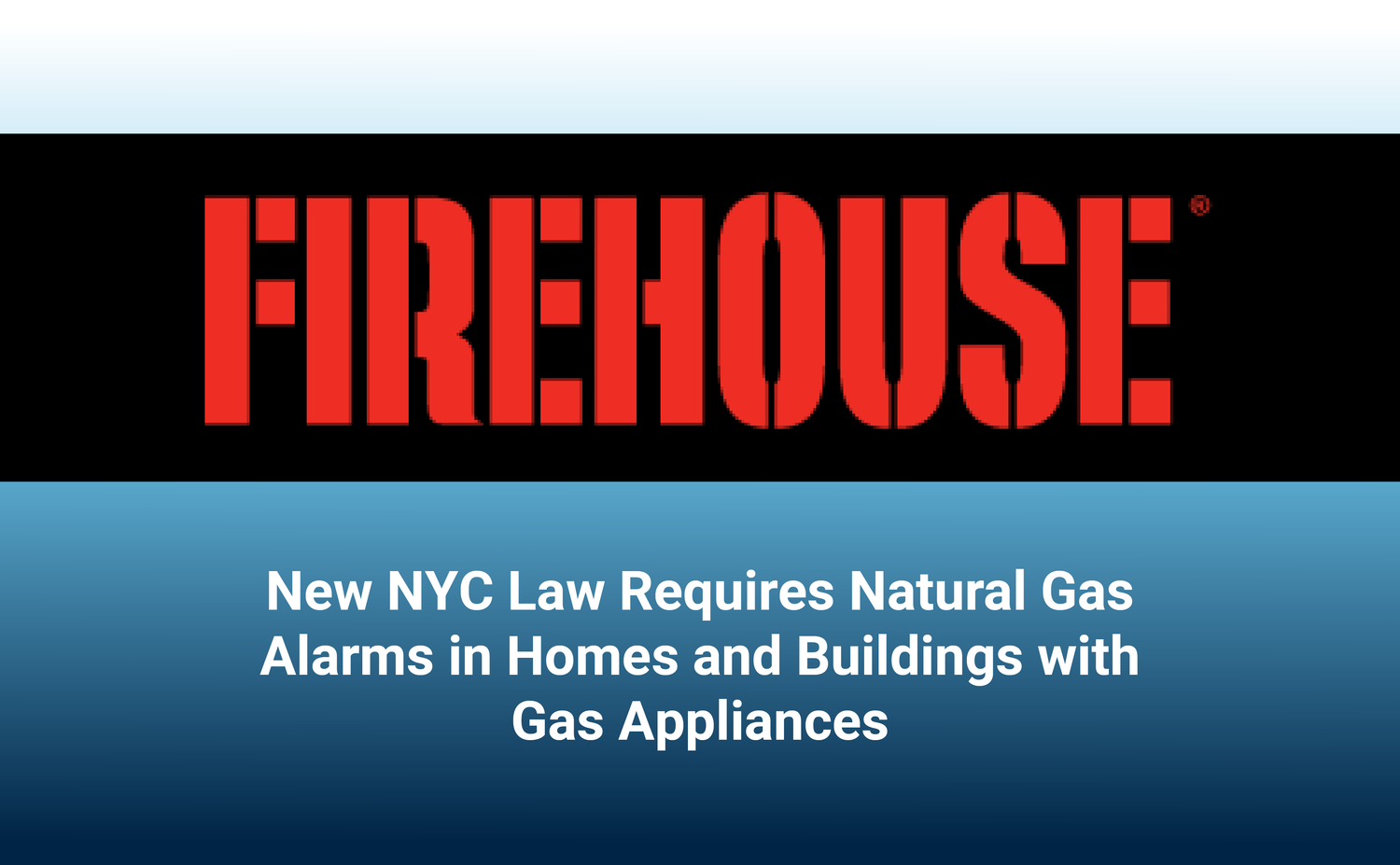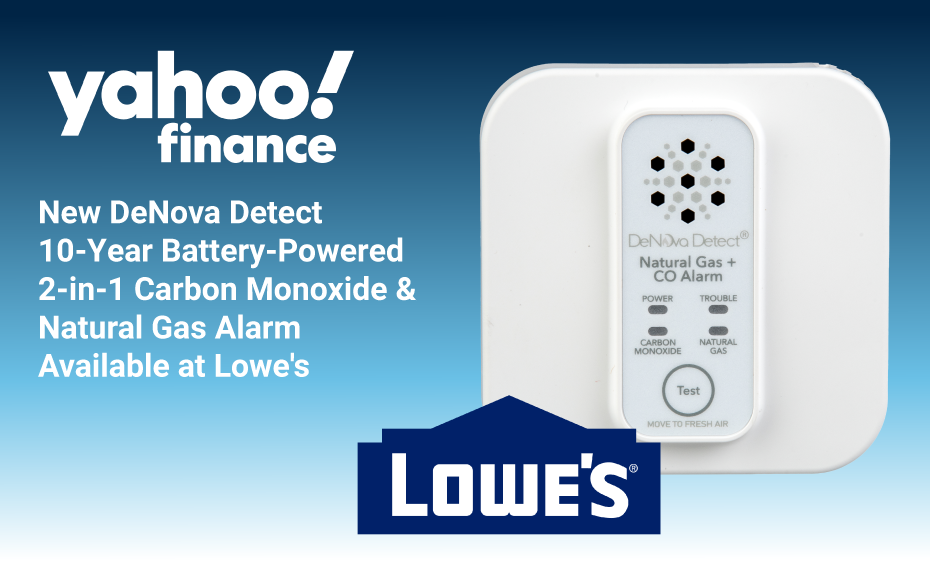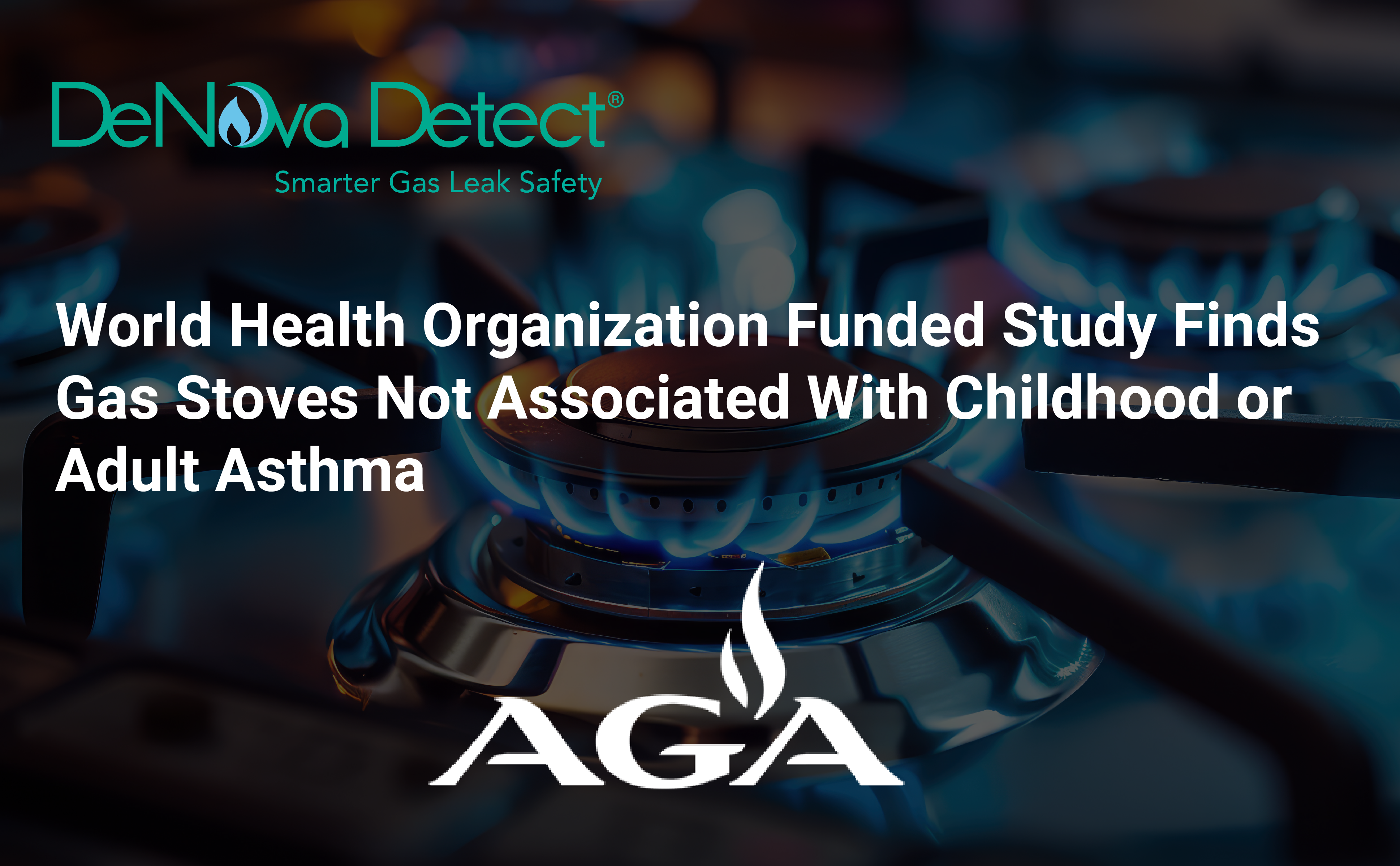Lisle, Ill. [April, 2024] New York City is the first major city in the United States to require natural gas alarms in homes and buildings, just like smoke and carbon monoxide alarms are required. The LL157 law, went into effect March 15th and full compliance is required by May 1, 2025. Nearly 90 percent of residents in NYC use natural gas in their homes. Landlords are required to supply natural gas alarms in rental units by the deadline. Of the 3.6 million apartment units in the five NYC boroughs, most use natural gas.
Natural gas incidents are on the rise across the United States primarily due to the aging infrastructure. New York state leads the nation in natural gas incidents, including several devastating gas explosions in NYC in the last decade where residents were killed and injured, buildings were destroyed and many people lost their homes. As the most densely populated city in the U.S., natural gas incidents in NYC can impact entire neighborhoods.
According to the National Fire Protection Association, a major gas leak incident or explosion is reported to the federal government every 40 hours in the U.S. Natural gas ignites 4,200 home fires each year in the United States alone, and U.S. fire departments respond to an average of 125,000 residential natural gas or liquefied petroleum gas leaks annually (NFPA). Often there is no warning before a gas explosion occurs and that’s why early warning technology in natural gas alarms is critical.
“Natural gas alarms and the early detection and warnings they provide are essential for public safety,” said Assemblywoman Alicia L. Hyndman from Queens, New York. “In the past decade, New York City has experienced a number of devastating natural gas explosions where residents were killed and injured, buildings were destroyed, and families lost their homes. As the most densely populated major city in the U.S., gas related incidents that occur here often impact entire neighborhoods.”
Maine became the first state to require natural gas alarms in 2022. Now, seven other states have legislation pending to require natural gas alarms including Connecticut, Illinois, Massachusetts, New Jersey, New York, North Carolina, and Tennessee.
“It’s important to know which alarms meet the NYC law requirements because some alarms do not. When purchasing a natural gas alarm look for the ETL or UL mark on the back of the alarm to verify it meets safety standards. An alarm that does not have this designation does not meet the law requirement,” said Julie Harris, natural gas education director with DeNova Detect, the company that invented the first natural gas alarm 60 years ago in Japan. “Since natural gas rises, it is crucial to install the alarm near the ceiling for early warning. This is much easier to do with battery operated alarms than with plug-in ones.”
Consolidated Edison chose DeNova Detect, natural gas alarms for its pilot program to install alarms in 400,000 homes and buildings in Manhattan and Westchester County. With 220,000 alarms already installed, there have been virtually no false alarms and the alarms have detected more than 3,000 natural gas leaks before explosions occurred. DeNova Detect natural gas alarms offer many unique benefits:
- DeNova Detect natural gas alarms are 100 percent battery operated with batteries that last for 10 years and never have to be replaced.
- DeNova Detect natural gas alarms alert to the presence of natural gas 11 minutes sooner on average than any other alarm, so people can escape even faster and alert emergency services before an explosion occurs.
- They have a zero-rate of false alarms using the most advanced MEMS sensor technology.
- Voice alerts in English and Spanish announce the type of hazard and instructions to evacuate and then call 911.
- The alarms easily mount to a wall, near the ceiling, with no electrical outlet or wiring needed.
- First and only 10-year battery-powered combination natural gas alarm and a combination CO + natural gas alarm in the U.S.
- The cost of the alarms is $8 to $9 a year depending on the model selected.
The DeNova Detect team will attend the 2024 NASFM Conference in Kansas City where they are exhibiting state-of-the-art natural gas alarms with the fastest detection on the market for the third year in a row. To learn more about the importance of natural gas safety, visit DeNovaDetect.com.
About DeNova Detect/New Cosmos USA, Inc.
New Cosmos Electric, a leading global supplier of natural gas alarms for more than 60 years, formed a wholly owned subsidiary, New Cosmos USA, Inc., in 2018. New Cosmos USA is headquartered in the Chicago area and has developed the DeNova Detect brand to provide gas alarms to some of the largest utility companies in the U.S. as well as commercial and residential customers. With more than 70 million residential gas alarms sold worldwide, and the developer of the first-ever residential natural gas alarm, New Cosmos remains committed to delivering cutting-edge safety solutions to customers globally to protect what matters most.
Source: Firehouse.com





Leave a comment
This site is protected by hCaptcha and the hCaptcha Privacy Policy and Terms of Service apply.